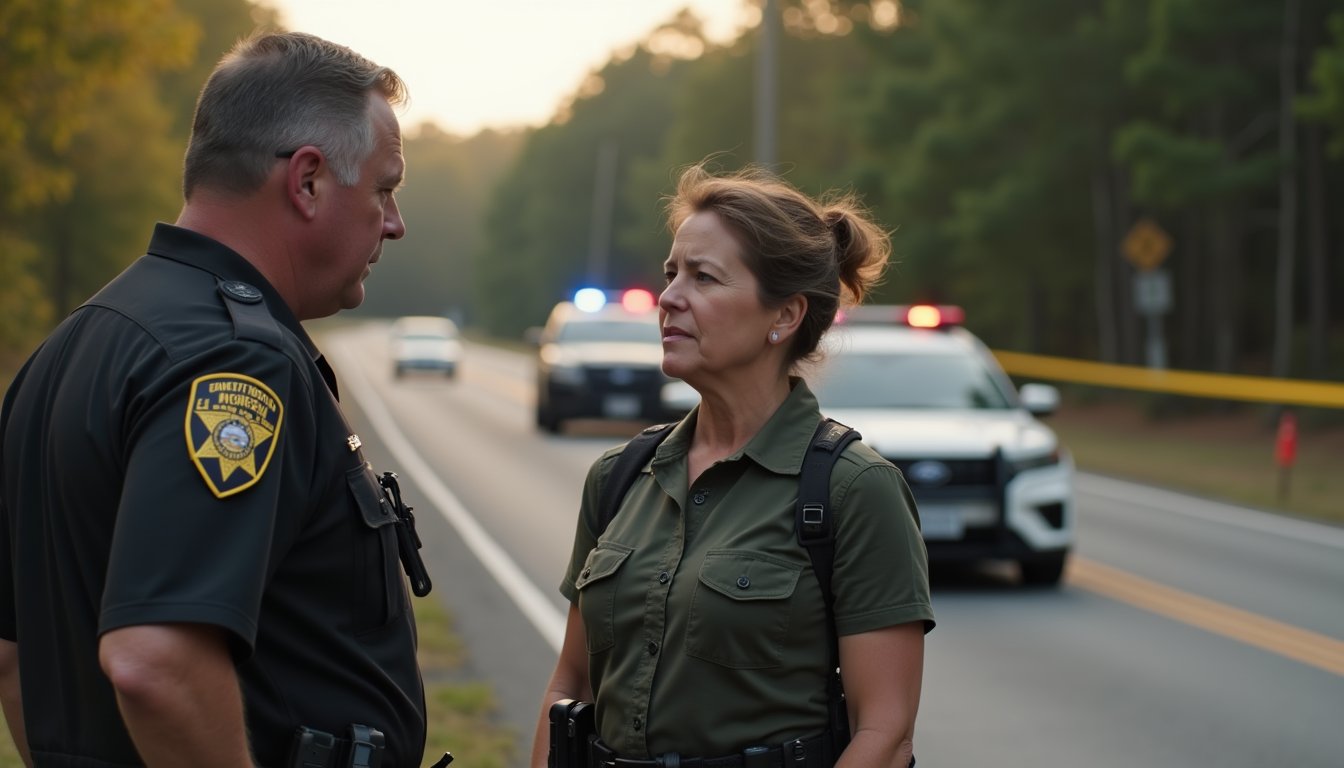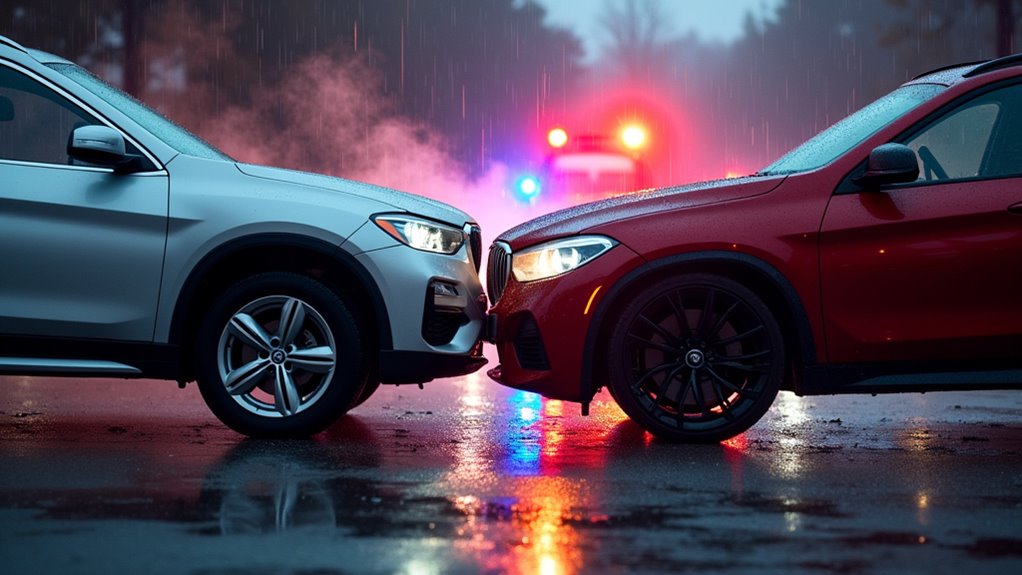A deadly road rage confrontation in Paulding County, Georgia on June 9, 2015, led to voluntary manslaughter charges against Collins Pruit. The incident resulted in the shooting death of 41-year-old Shawn Christopher Brannon, who managed to drive to a nearby fire station before succumbing to his injuries. Under Georgia law OCGA Section 15-5-2(a), voluntary manslaughter carries a potential 1-20 year sentence. The case highlights complex legal considerations surrounding sudden passion versus premeditated actions in road rage incidents.
Understanding the Fatal Road Rage Incident in Paulding County

On June 9, 2015, a fatal road rage confrontation unfolded near the intersection of Ridge Road and Cohran Stone Road in Paulding County, Georgia. The incident resulted in the death of 41-year-old Shawn Christopher Brannon, who suffered a gunshot wound during the altercation. After being shot, Brannon managed to call 911 and drive himself to a nearby fire station.
Despite emergency response efforts, Brannon was pronounced dead at WellStar Paulding Hospital. Law enforcement officials relied on bystander testimony and evidence preservation to identify Collins Pruit as the alleged shooter. Pruit was subsequently arrested and charged with voluntary manslaughter, remaining in custody without bond.
Legal Framework: Georgia’s Voluntary Manslaughter Statute
Under Georgia law, voluntary manslaughter is defined by OCGA Section 15-5-2(a) as causing the death of another person under circumstances that would otherwise constitute murder, except that the act occurs due to a sudden, violent, and irresistible passion resulting from serious provocation.
The statute carries a potential sentence of 1-20 years imprisonment upon conviction. Cases often require expert testimony and forensic reconstruction to determine if the circumstances align with the statutory definition. Prosecutors must prove the defendant acted in the heat of passion rather than with premeditation. The distinction between murder and voluntary manslaughter hinges on whether sufficient provocation existed to trigger an irresistible emotional response.
Defense Strategies in Road Rage Cases

Effective defense strategies in road rage cases require a multi-layered approach that addresses both legal and psychological elements. Defense attorneys typically focus on establishing self-defense claims, supported by expert witness testimony regarding the defendant’s state of mind during the incident. The defense may challenge the prosecution’s timeline, reconstruct events through forensic analysis, and present evidence of emotional distress claims that could mitigate culpability. Key strategies include documenting the victim’s aggressive actions, analyzing surveillance footage, gathering witness statements, and potentially demonstrating how the defendant’s response aligned with Georgia’s stand-your-ground laws.
Navigating Criminal Charges and Potential Outcomes
When facing voluntary manslaughter charges in Georgia road rage incidents, defendants must navigate a complex legal framework that carries weighty penalties ranging from 1 to 20 years of imprisonment.
Successful case outcomes often depend on strategic elements including witness credibility and thorough jury selection. Defendants with experienced legal representation typically achieve more favorable results, potentially reducing charges to involuntary manslaughter or securing acquittal through self-defense claims. The prosecution must prove beyond reasonable doubt that the defendant acted under sudden passion rather than justified self-defense. Cases like the Brannon incident demonstrate how proper legal navigation can profoundly impact sentencing outcomes.
Building a Strong Legal Defense Team

A powerful legal defense team forms the cornerstone of successfully navigating voluntary manslaughter charges in Georgia road rage cases. Essential components for mounting an effective defense include:
- Lead criminal defense attorney with proven track record handling voluntary manslaughter cases and securing plea bargains
- Expert psychological testimony specialists who can reconstruct the defendant’s mental state during the confrontation
- Forensic experts capable of analyzing physical evidence, reconstructing the crime scene, and establishing timeline of events
This coordinated team approach optimizes opportunities for charge reduction or acquittal while ensuring all legal strategies and defenses are thoroughly investigated and expertly presented in court.
Frequently Asked Questions
How Can Family Members Visit the Defendant While in County Jail?
Family members must follow specific jail visitation policies, which typically require advance registration and approved visitor status. Most facilities maintain strict schedules, requiring visitors to arrive during designated hours. Legal representation can assist families in understanding visitation requirements and obtaining necessary clearances. Visitors should bring valid government-issued identification and comply with facility dress codes and contraband restrictions. Some jails now offer video visitation options.
What Happens to the Defendant’s Vehicle After a Road Rage Incident?
Following a serious incident involving a vehicle, law enforcement typically orders vehicle impoundment as evidence. The vehicle remains in police custody during the investigation and legal proceedings. Insurance coverage cancellation may occur if the incident violates policy terms. The defendant’s family can request vehicle release through their attorney once the investigation concludes, though they must pay impoundment fees and prove valid insurance to reclaim it.
Can the Victim’s Family File a Separate Civil Lawsuit?
When a life is tragically lost due to another’s actions, the deceased’s family retains legal recourse through civil proceedings. The surviving family members can pursue a wrongful death lawsuit independently of any criminal prosecution. This parallel legal action addresses civil liability concerns and operates under different standards of proof than criminal cases. The civil case can proceed regardless of the criminal case outcome, potentially resulting in monetary compensation for damages.
How Long Does It Typically Take for Road Rage Cases to Conclude?
Road rage cases typically take 6-18 months to conclude, depending on diverse factors. Cases involving plea bargaining negotiations may resolve within 3-6 months, while those proceeding to trial can extend beyond a year. The sentencing hearing timing usually occurs within 30-60 days after a guilty plea or verdict. Complex cases involving extensive evidence, multiple witnesses, or forensic analysis may require supplementary time for proper resolution.
Are Anger Management Classes Required Before or After the Legal Proceedings?
Studies show that 95% of criminal cases involving violent offenses require some form of psychological intervention. Anger management therapy may be mandated both before and after legal proceedings, depending on the court’s requirements. Pre-trial psychological evaluations often determine if immediate anger management is necessary, while post-conviction programs are typically part of sentencing or probation conditions. The court maintains discretion in determining the timing and duration of required therapeutic interventions.

